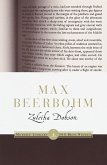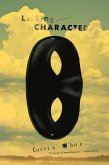Sir Henry Maximilian "Max" Beerbohm was, like his friend Oscar Wilde, such an acclaimed wit (and essayist, caricaturist, and parodist) that George Bernard Shaw dubbed him "the incomparable Max." But Beerbohm's comic masterpiece Zuleika Dobson-one of the Modern Library's top 100 English-language novels of the twentieth century-is the only novel he ever wrote. Strangely out of print in the United States for years, this crackling farce is nonetheless as piercing and fresh as when it first appeared in 1911: a hilarious dismantling of academia and privilege, and a swashbuckling lampooning of class systems and notions of masculine virtue. The all-male campus of Oxford-Beerbohm's alma mater-is a place where aesthetics holds sway above all else, and where witty intellectuals reign. Things haven't changed for its privileged student body for years . . . until the beguiling music-hall prestidigitator Zuleika Dobson shows up. The book's marvelous prose dances along the line between reality and the absurd as students and dons alike fall at Zuleika's feet, and she cuts a wide swath across the campus-until she encounters one young aristocrat for whom she is astonished to find she has feelings. As Zuleika, and her creator, zero in on their targets, the book takes some surprising and dark twists on its way to a truly startling ending-an ending so striking that readers will understand why Virginia Woolf said that "Mr. Beerbohm in his way is perfect."
Dieser Download kann aus rechtlichen Gründen nur mit Rechnungsadresse in A, B, BG, CY, CZ, D, DK, EW, E, FIN, F, GR, HR, H, IRL, I, LT, L, LR, M, NL, PL, P, R, S, SLO, SK ausgeliefert werden.









